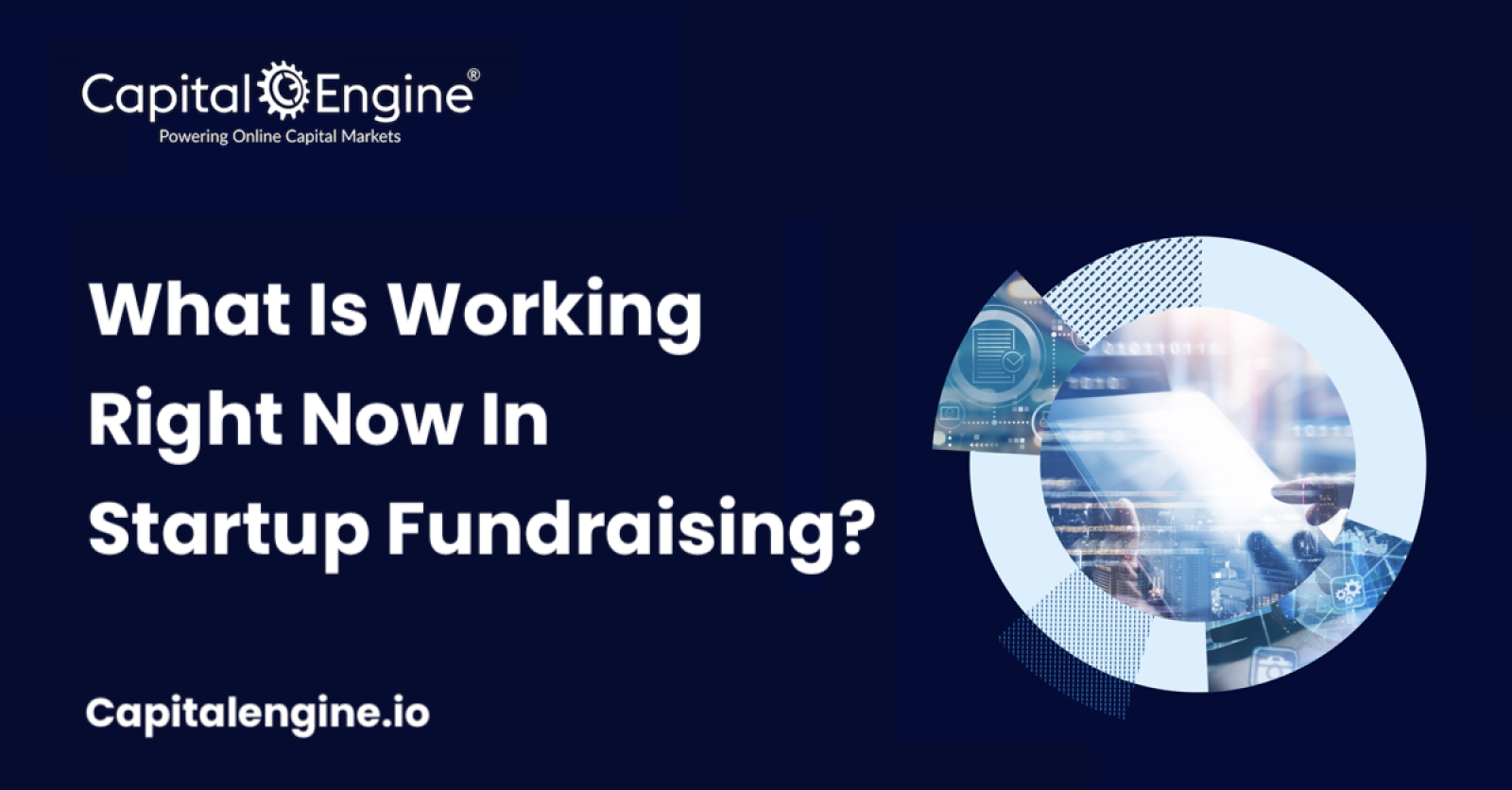Startup Fundraising

Fundraising in the private markets has become increasingly challenging in 2023 as the venture capital (VC) world tightens amidst economic uncertainty. However, companies are still finding creative ways to continue raising capital.
Many are turning to Regulation A (Reg A) and Regulation Crowdfunding (Reg CF), both of which provide unique benefits and flexibility compared with traditional VC.
Many are concerned about a potential recession with high inflation and rising interest rates. This is why venture capital firms are slowing investments in new ventures and instead focusing on their existing portfolios.
The decision to slow investments leaves many startups and mature private companies struggling to raise new capital through traditional, accredited VC channels.
The Increasing Appeal of Reg A and CF Offerings
To continue fundraising despite the VC pullback, companies are getting creative and increasingly turning to Reg A and Reg CF offerings.
“Regulation A raises are particularly attractive to companies for their lower costs and streamlined process compared to traditional IPOs or amount of equity that a VC might require. These offerings allow more flexibility in marketing and enable access to both accredited and non-accredited investors,” said Etan Butler, chairman of Reg A platform Dalmore Group.
Reg A allows companies to raise up to $75 million in a 12-month period from public investors with simpler reporting requirements compared to a traditional IPO. The shares are also freely tradable, giving founders and investors potential liquidity.
Democratizing Startup Fundraising
Reg CF enables companies to raise funds in a 12-month period up to $5 million. The funds can come from both accredited and non-accredited investors. While lower than Reg A, Reg CF provides startups and small businesses access to capital from their customers and supporters.
The Reg CF and Reg A alternatives help democratize fundraising, especially for female and minority founders.
“There are 30 million companies in the U.S. and many of them have capital needs to
survive and expand. Very few of them are aware that you could raise money from anyone using a Reg A offering, and that it is as simple as putting an ‘invest’ button on your website,” Butler remarked.
Recent Reg A Policy Changes
Recent changes have made Reg A even more appealing as an alternative to traditional fundraising channels.
Reg A has truly become a valid alternative to an S-1 once it gets to a certain size. Reg A offerings are often referred to as "mini IPOs" because they allow companies to raise money from the public without the same level of regulatory and financial reporting requirements as a traditional Initial Public Offering (IPO) using an S-1 registration statement.
In 2021, the SEC increased the maximum raise allowed under Reg A from $50 million to $75 million. This expanded fundraising capacity and lowered costs and reporting requirements, making Reg A a viable option beyond early-stage companies.
According to Mike Van Someren, Real Estate and Corporate Partner at AmundsenDavvis, “This means a greater pool of investors without all of the costs of a traditional IPO or without the need to have a predetermined list of investors.”
Read more..
About Capital Engine®
Capital Engine® provides forward-thinking organizations with efficient and scalable private capital and investor management solutions, for both traditional and digital assets.
Built for high-performance capital raising, our technology helps leverage the opportunity to better originate and showcase a diverse selection of private investment deals and offer these to investors i.e. a deal’s potential viability can be better assessed, market appetite determined and transaction promptly closed.
Our clients include broker dealers, family offices, wealth managers, incubators, accelerators, social impact and real estate funds, in providing customized SaaS solutions to power private capital and alternative investment platforms, with a strong focus on investor management services.
Interested in raising capital
Request a Call / Demo
Many are turning to Regulation A (Reg A) and Regulation Crowdfunding (Reg CF), both of which provide unique benefits and flexibility compared with traditional VC.
Many are concerned about a potential recession with high inflation and rising interest rates. This is why venture capital firms are slowing investments in new ventures and instead focusing on their existing portfolios.
The decision to slow investments leaves many startups and mature private companies struggling to raise new capital through traditional, accredited VC channels.
The Increasing Appeal of Reg A and CF Offerings
To continue fundraising despite the VC pullback, companies are getting creative and increasingly turning to Reg A and Reg CF offerings.
“Regulation A raises are particularly attractive to companies for their lower costs and streamlined process compared to traditional IPOs or amount of equity that a VC might require. These offerings allow more flexibility in marketing and enable access to both accredited and non-accredited investors,” said Etan Butler, chairman of Reg A platform Dalmore Group.
Reg A allows companies to raise up to $75 million in a 12-month period from public investors with simpler reporting requirements compared to a traditional IPO. The shares are also freely tradable, giving founders and investors potential liquidity.
Democratizing Startup Fundraising
Reg CF enables companies to raise funds in a 12-month period up to $5 million. The funds can come from both accredited and non-accredited investors. While lower than Reg A, Reg CF provides startups and small businesses access to capital from their customers and supporters.
The Reg CF and Reg A alternatives help democratize fundraising, especially for female and minority founders.
“There are 30 million companies in the U.S. and many of them have capital needs to
survive and expand. Very few of them are aware that you could raise money from anyone using a Reg A offering, and that it is as simple as putting an ‘invest’ button on your website,” Butler remarked.
Recent Reg A Policy Changes
Recent changes have made Reg A even more appealing as an alternative to traditional fundraising channels.
Reg A has truly become a valid alternative to an S-1 once it gets to a certain size. Reg A offerings are often referred to as "mini IPOs" because they allow companies to raise money from the public without the same level of regulatory and financial reporting requirements as a traditional Initial Public Offering (IPO) using an S-1 registration statement.
In 2021, the SEC increased the maximum raise allowed under Reg A from $50 million to $75 million. This expanded fundraising capacity and lowered costs and reporting requirements, making Reg A a viable option beyond early-stage companies.
According to Mike Van Someren, Real Estate and Corporate Partner at AmundsenDavvis, “This means a greater pool of investors without all of the costs of a traditional IPO or without the need to have a predetermined list of investors.”
Read more..
About Capital Engine®
Capital Engine® provides forward-thinking organizations with efficient and scalable private capital and investor management solutions, for both traditional and digital assets.
Built for high-performance capital raising, our technology helps leverage the opportunity to better originate and showcase a diverse selection of private investment deals and offer these to investors i.e. a deal’s potential viability can be better assessed, market appetite determined and transaction promptly closed.
Our clients include broker dealers, family offices, wealth managers, incubators, accelerators, social impact and real estate funds, in providing customized SaaS solutions to power private capital and alternative investment platforms, with a strong focus on investor management services.
Interested in raising capital
Request a Call / Demo
Latest Articles





